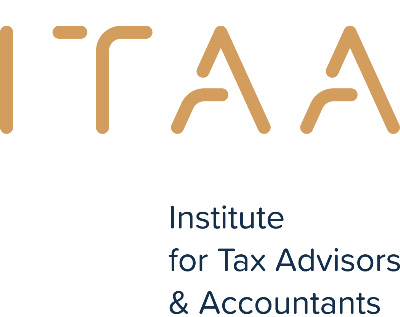Feature story
EU Finance Ministers discuss Pillar 2 Directive, France aims for agreement by 15 March
This discussion, which took place on 18 January, was the first public session in which EU Member States provided their views on the European Commission’s (EC) Pillar 2 Directive, published on 22 December.
Overall, the discussion appeared surprisingly smooth with a majority of Member States stating their willingness to try to find a swift agreement. Most critical comments were heard from Malta, Estonia, Hungary and, to a degree, Poland. Although the Polish minister insisted on legally linking Pillars 1 and 2, he did indicate that this would be the only main concern for them (assuming that the Polish government does not intend to use the file as a bargaining chip in its ongoing disputes with EC in unrelated areas).
The main points of contention express:
- the ambitious timeline – both for the French aspirations to reach an agreement in the spring, as well as the Organisation for Economic Co-operation and Development’s (OECD) 2023 implementation deadline
- deviations between the EC proposal and OECD model rules – although here several countries stated that deviations are acceptable if they are necessary to align the model rules with EU law
- linking Pillars 1 and 2
- general concerns around national impact of the rules
Having received political direction from the finance ministers, the French Council Presidency will continue the work at a working party level. Bruno Le Maire stated that the French Presidency would aim to reach an agreement already at the 15 March Economic and Financial Affairs Council (ECOFIN) meeting. Watch the recording
EU Developments
European Commission
New study on Immovable Property Taxation for Sustainable and Inclusive Growth
The EC has published a new study that provides an overview of recurrent property taxation in EU Member States. It also investigates ways in which recurrent property taxation can maintain economic efficiency, help reduce inequality and support environmental goals. Read more
Commission proposals on DEBRA and Pillar 1 now have indicative timelines
Both proposals have been expected for sometime this year, and the indicative publication dates may still change. But for now, the debt-equity bias reduction allowance (DEBRA) is scheduled for 11 May. An EC Directive to implement Pillar 1, for its part, is scheduled for 27 July. As a reminder, in December the EC announced that a part of the Pillar 1 should be allocated directly to the EU budget.
Commission launches public consultation on VAT in the digital age
The consultation was published on 21 January and will run until 15 April. The consultation seeks stakeholders’ views on whether the current value-added tax (VAT) rules are adapted to the digital age, and on how digital technology can be used both to help Member States fight VAT fraud and to benefit businesses. Views are sought particularly on VAT reporting obligations and e-invoicing, the VAT treatment of the platform economy, and the use of a single EU VAT registration. Read more
European Parliament
FISC hearing on new studies on taxation
The 10 January hearing organised with the Subcommittee on tax matters (FISC) saw presentations of two studies. The first study on harmful tax practices and harmful tax competition in the area of personal income tax and wealth tax was presented by Prof. Neumeier (ifo Institute Munich). He set out how the process of global economic integration has led to an increase in the mobility of ‘traditional’ tax bases, concerning particularly personal income tax (PIT) and wealth taxes.
The second study on the evaluation of anti-tax avoidance and evasion measures was presented by Prof. Haslehner and Prof. Pantazatou (University of Luxembourg). They analysed the impact of the recently introduced anti-tax avoidance and evasion measures on combatting tax avoidance possibilities for corporate entities and pointed out the remaining loopholes and gaps. Read more
BUDG hearing with Commissioner Hahn on EU own resources
The hearing, held on 13 January, focused on the Own Resources package proposed by EC on 22 December. The package comprises three new categories of own resources for the EU budget based on revenue from the revised emissions trading system (ETS), the Carbon Border Adjustment Mechanism (CBAM) and a share of the OECD Pillar 1 agreement.
The MEPs generally welcomed the proposal but expressed concerns on whether the package will be enough to pay off both the Social Climate Fund and the NextGenerationEU.
The Commissioner stated that EC will advance the proposal for a second basket of new own resources by the end of 2023. This could include a financial transaction tax, and an own resource linked to the corporate sector based on the business in Europe, framework for income taxation (BEFIT proposal foreseen for 2023).
ECON adopts draft report on withholding taxation
The draft report, prepared by MEP Pedro Marques (S&D/Portugal), was adopted with 52 votes in favour, 5 votes against and 1 abstention. It puts forward recommendations to set up a robust pan-European withholding tax framework. A final vote in Plenary is currently scheduled for 3 March.
Accountancy Europe’s Paul Gisby was happy to attend a 27 October hearing of the Committee to provide his insight and expertise to support the MEPs’ work on this important topic.
Bruno Le Maire discusses French Presidency priorities with ECON
The hearing took place on 25 January with the Committee on Economic and Monetary Affairs (ECON). Bruno Le Maire, Minister of the Economy, Finance and the Recovery of France, provided an overview of the French ECOFIN presidency priorities (covering financial services, economic governance and taxation).
On international tax reform, Le Maire underlined the EU’s (and, specifically, France’s) efforts that led to the formation of the OECD agreements around Pillars 1 and 2. He also received criticism, especially from fellow French MEPs for what they saw as a lack of ambition in the international agreement. Le Maire also expressed his support for Article 116, which would allow the EU to legislate on tax matters without the need for Council unanimity. Read more
FISC discusses EU relations with third countries on taxation
The FISC Committee hearing, held on 1 February, consisted of two panels.
During the first panel, a key theme was the importance of ensuring proper implementation of pillars 1 and 2 of the OECD agreement. Responding to questions on amending the EU ‘blacklist’, the representative of the EC stated that the EU had to first get its own house in order before including stronger rules in areas such as beneficial ownership to the criteria for the EU list.
While guest speakers during the second panel stated that the agreement at OECD level was indeed a historic one, they underlined that it did not go far enough to ensure equitable tax revenue sharing with developing countries. Moreover, the Committee heard that the EU should concentrate its efforts on capacity building and not on imposing sanctions as many jurisdictions in the developing world did not have the capacity to develop their tax regimes in line with the fast pace of changes at the international level. Read more
ECON adopts draft report on fair and simpler taxation
The draft own-initiative report on ‘Fair and simpler taxation supporting the recovery strategy’ was approved at a 2 February ECON vote with 43 votes in favour, 7 votes against and 9 abstentions.
The report was prepared by MEP Ludek Niedermayer (EPP/Czech Republic). It is the Parliament’s follow-up to the July 2020 EC Action Plan and its 25 initiatives in the areas of VAT, business and individual taxation. The Plenary vote is currently scheduled for 7 March. Read more
FISC discusses member states’ fossil fuel subsidies with ECA
The FISC Committee hearing took place on 10 February, featuring a presentation of the European Court of Auditors (ECA) on its Review 01/2022 on energy taxation, carbon pricing and energy subsidies (see article below). Viorel Ştefan from ECA noted that fossil fuel subsides by Member States amounted to between EUR 55-58 billion annually over the past few years. She stated that this was a clear indicator that not all Member States’ actions were in line with their agreed climate goals.
Several MEPs stressed that not enough ambition was being shown by Member States and they welcomed the EC proposal in this regard. However, there were also calls to protect the most vulnerable households from increased heating bills. EC’s Mr. Hurtado assured MEPs that the proposal allowed for exemptions for the most vulnerable households to ensure the outcome was not increased energy poverty in Europe. Read more
European Parliament adopts resolution on 6th VAT Directive
European Parliament (EP) Plenary adopted on 14 February a draft report on the 6th VAT Directive, with a margin of 510 votes in favour, 74 votes against and 108 abstentions. The report was prepared by MEP Olivier Chastel (RE/Belgium). This non-binding report does not force EC or the Council to any course of action. Read more
And a resolution on the impact of national tax reforms on the EU tax system
EP’s Plenary also adopted on 14 February a draft report on the impact of national tax reforms on the EU economy. The report was prepared by MEP Markus Ferber (EPP/Germany), and adopted by a comfortable margin of 469 votes in favour, 94 votes against and 137 abstentions. This is a non-binding own initiative report and does not force either EC or the Council to take action. Read more
International developments
15 EU Member States subsidise fossil fuels more than renewables
This is the conclusion of a report published by the ECA on 31 January. The report assesses how energy taxes, carbon pricing and energy subsidies fit with EU climate objectives.
It recognises that energy taxation can support climate efforts, but current tax levels do not reflect the extent to which different energy sources pollute. Renewable energy subsidies have almost quadrupled over 2008-2019, while fossil fuels subsidies have remained stable.
15 Member States spend more on fossil fuel than renewable energy subsidies, the report finds. The report also outlines challenges faced by policymakers when updating energy taxation and subsidies policies: ensuring energy taxation consistency across sectors and energy carriers; reducing fossil fuel subsidies/ and reconciling climate objectives with social needs. Read more
OECD launches public consultation on Pillar 1 Amount A
The OECD is seeking public comments on the Draft Rules for Nexus and Revenue Sourcing under Pillar One Amount A.
The public consultation document was published on 4 February, and contains the first building blocks under Pillar One for which public input will be sought.
The Inclusive Framework has agreed to release this document in order to obtain public comments, but the draft rules do not reflect consensus regarding the substance of the document. The stakeholder input received will assist members of the Inclusive Framework in further refining and finalising the relevant rules.
Interested parties are invited to send their written comments no later than 18 February 2022. Read more
Accountancy Europe publishes overview of key provisions in Council’s VAT rates agreement
Following Council’s agreement on EU VAT rates reform in December 2021, Accountancy Europe published on 14 February a paper outlining the key features of the compromise. It provides a comprehensive overview of how the Council agreement differs from the original EC proposal, and from the status quo. Read more


